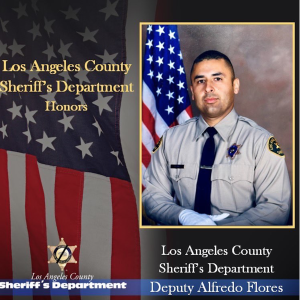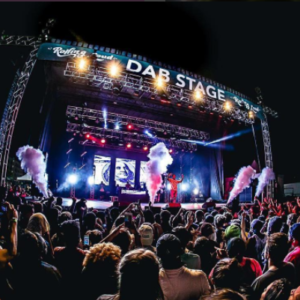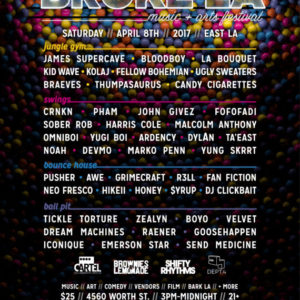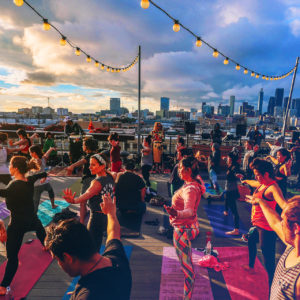 View Winners →
View Winners → 
UCLA’s Center for the Art of Performance has had a whirlwind season of artists and entertainers this year from various genres, medias, and cultures. On March 28th, the community welcomed tabla virtuoso Zakir Hussain and friends from around the world, despite the pushback the ensemble faced in coming into the country.
The anticipation of the sold-out crowd was high, especially with the difficulties the musicians had in obtaining visas. Sitarist Niladri Kumar fell victim to the scrutiny of the United States’ heightened immigration policy restrictions in recent history and was unable to make it to Los Angeles in time for the concert.
“It’s so exciting to see the situation in which the government is working in a way against all of our efforts,” CAP UCLA Deputy Director Fred Frumberg later shared. Speaking to their resistance he said, “Well, we can do even better. And we don’t need for you to cooperate… and as long as you’re not going to, we’re going to rise above it. We’re going to do amazing work and amazing music despite all of your efforts to thwart what we’re trying to do.”
Hussain spoke on the matter briefly before beginning his concert, simply stating, “shit happens,” with a shrug to immigration and its effect on their performance. Instead of letting the less than ideal situation dampen his spirits, he thanked everyone able to come forward and help at the last minute. Hussain then laughed for the audience to expect plenty of “drum bashing” before a whole-hearted exclamation of wanting to embark on a rhythm journey together.
A critical component of this last-minute miracle was violinist and vocalist Ganesh Rajagopalan, who with less than a week turnaround was on stage alongside Hussain, keeping up effortlessly with the rest of the ensemble who had been rehearsing together for months. Rajagopalan was already on the west coast at the University of Washington in Seattle, just finishing a residency with their Ethnomusicology program. Rajagopalan has had success of his own beyond playing alongside Hussain in the past, working with film scorer A.R. Rahman (Slumdog Millionaire) and John McLaughlin.
https://www.instagram.com/p/BJ4pkvIgsit/
The show started with Hussain and Rajagopalan each seated centerstage on a platform. Zakir and Rajagopalan each wore kurtas, a spirited turquoise and modest off-white, respectively. There was a palpable connection between the two that only fed into the mood of the night, a conversation on stage as well as with the audience. The dialogue between tabla and violin was vibrant but fluid, Rajagopalan’s toes curling and dancing beneath the neck of his violin, which he played vertically rather than horizontally. After the duo closed their set, Hussain thanked Rajagopalan, who responded in kind with his hands to heart in gratitude.
Joining the two soon after was Eric Harland on western drums, surrounded by what seemed like a wall of over half-a-dozen cymbals which he played as if his own appendages. Harland has additionally teamed up with the likes of McCoy Tyner, Esperanza Spalding, and Robert Glasper before teaming up with Hussain for this tour. The juxtaposition of the classical Indian tones and rhythms with Harland’s more traditional American jazz iterations created a dynamic synthesis that the audience was in constant nod and sway to. Hussain himself was entranced throughout, never skipping a beat on tabla, even when grabbing a rag to wipe the sweat from his upper lip.
Sound check, Royce hall UCLA looking forward to tonight’s MOP show 👍😊🙏 pic.twitter.com/xHyUGgI34y
— Zakir Hussain (@ZakirHtabla) March 29, 2019
The latter half of the show welcomed The Drummers of Kerala, featuring Mattannur Sankarankutty Marar on the chenda accompanied by his sons V.M. Sreekanth and V.M. Sreeraj as well as Keralan Vellinezhi Anand. Together, they introduced the audience to a new component of the night within traditional Indian music, thayambaka, using the call-and-response method of drumming to further emphasize the conversational theme throughout the concert.
The enthusiasm on stage could not be matched, with the musicians’ energy filtering into each new song before the previous was done. The applause was a mere speedbump in the ensemble’s percussive drive.
Hussain’s history with the tabla runs back to his youth, beginning to play at 12 alongside his late father, Ustad Allarakha Qureshi (also known as Alla Rakha), who is being celebrated on this tour for the centennial year of his birth. Alla Rakha has had a history of his own with Los Angeles, having frequently accompanied sitarist Ravi Shankar, including in 1968 on his album Festival from India, recorded at LA’s now defunct World Pacific studio (previously Pacific Jazz Records) and performed at the Greek Theater. Zakir Hussain’s return is a resurgence of a connection decades deep between the Indian classical community and the legacy of jazz in the city.
https://www.instagram.com/p/BIxP2RNACxQ/
Acknowledging the significance of this night and artist, Hussain was honored by the Jazz Journalists Association with the award for Percussionist of the Year. Journalist Kirk Silsbee was onsite to deliver the award, ecstatic to share the importance of Hussain’s concert. He shared his knowledge of Los Angeles’ history with the Indian music community, explaining the city’s conception of this relationship, noting, “These connections are deep, they’re long. They’re part of a dialogue, a conversation that has been going on for years. And tonight we heard the latest installation of that dialogue.”
Zakir Hussain accepted the award, not without an abundance of appreciation for his fellow musicians while also alluding to his own ongoing personal journey as an artist though having just turned 68 in March.
“This of course is an incredible honor that I can’t even begin to say I deserve. It’s not possible. It’s a blessing. It’s a pat on the back. You know?… As opposed to here’s your award, now you’re done. Here is a blessing. ‘You’re on the right track. Keep going.’ And thank you for that. Thank you so much.”
Zakir Hussain and the Masters of Percussion continue their United States tour through April.
http://www.zakirhussain.com/
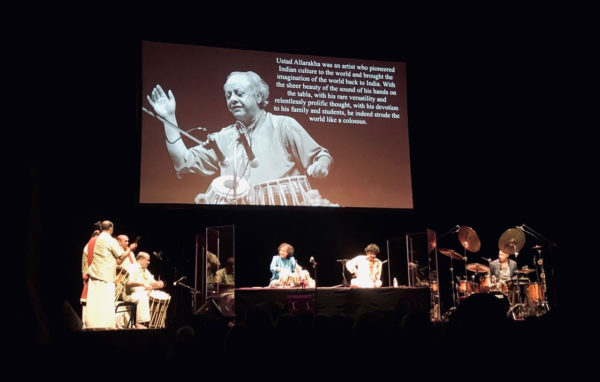
Photo by Motiejus Barauskas














































